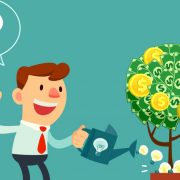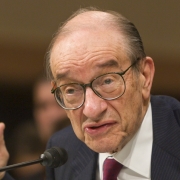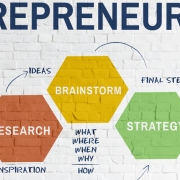The first sentence of the Poetic Justice Warrior prologue reads “Poetic justice spontaneously rewards virtue and punishes vice.” This is what free markets do, and for them to exist, a moral code that rewards virtue is essential. As economist and Poetic Justice Warrior Zhang Weiying tells us in his book The Logic of the Market,
The market has never tried to change human nature. Instead, precisely because human nature cannot be changed, the market economy exists, which is also the reason the market economy is necessary: It causes human actions to conform to the requirements of virtue.
As the dean of the Guanghua School of Management at Peking University, Zhang is an operatic voice in a cacophony of endemic Chinese government corruption. To nudge the looters toward doing the right thing, he relies on an old Chinese proverb, “benefit yourself by benefitting others,” and describes the market economy as “humanity’s greatest creation. It provides the best rules of the game for human progress,”
Property, Prices, and Profit
Zhang’s understanding of reality reveals that “enriching oneself at the expense of others cannot be done.” Even if you could it would be immoral, meaning anti-life; yet socialists of all stripes want a piece of the action for themselves, just in case. Equality and shared ownership are central tenets of their collectivist, nihilist doctrine.
A version of this insanity is perpetuated in both Chinese and American academic circles. In what Zhang calls the China Model School, is the belief that authoritarian economic planning allowed China to accomplish in forty years what it took the West two hundred years to achieve. As he explains,
“The West constructed the road China followed. That China walked faster does not mean that its institutions are superior. Private property, unhampered prices, enterprises, entrepreneurs, and profit” are the superior institutions for economic progress.
The differences between the two are stark. China’s presumes that all useful knowledge can be concentrated in the halls of government and academia, the West flourishing in a decentralized society united only by objective law. Zhang is well-schooled in Austrian economics, particularly the individualism of Friedrich Hayek, and told the China Review in 2006, “The more active entrepreneurs are in a particular region, the smaller the social and income gaps.”
In 1999’s Theory and China Enterprise Reform by Qin Xiao, Zhang proposed his “theorem of the impossibility of the entrepreneur in a state-owned economy.” As the Australian publication The China Story reports,
“If we compare different parts of China, areas with a low ratio of government officials to employed population have faster economic growth.” Ever the iconoclast, he suggested that reducing the number of government officials would contribute to economic growth.
Yet despite the overwhelming lessons of philosophy, economics, and history, our Age of Absurdity persists. Intellectual lightweights (aka politicians) like Jeremy Corbyn in the UK and Peter Altmaier in Germany ignore Zhang’s evidence and propositions, and actively promote totalitarian China’s third way – unprincipled compromises between the forest and the fire.
The Audacity of Dopes
During a 2016 debate reported by the Wall Street Journal, Chinese government and former chief economist at the World Bank, Professor Justin Yifu Lin, highlighted the industrial policies of China, including subsidies, tax breaks and financial incentives aimed at specific industries. Zhang replied with a laser, “Industrial policy is just a planned economy in disguise. In the end, both will fail for the same reasons.” From the Logic of Markets he argues,
It was precisely the relaxation of government control that brought about market prices, sole proprietorships, town and village enterprises, private enterprises, foreign enterprises, and other non-state-owned entities.
What the Wuhan virus epidemic teaches is that Chinese authoritarians remain very jealous of their power. Since they produce nothing, control of economic levers is primary to their success. Because they are incompetent, secrecy is necessary to mask their failures. While highly productive Chinese entrepreneurs use money to trade values, government bureaucrats continue to trade people.
The reported arrest and death of the contagion’s whistleblower, doctor Li Wenliang, is an example. According to the Hudson Institute’s Michael Pillsbury, there were seven other physician whistleblowers who were also incarcerated in December, ostensibly to protect China’s racially superior image. What’s more difficult to hide is the government lockdown of cities, shutdown of factories, and cancellation of exports.
Of course, this draconian response wouldn’t be necessary in a free-market society that prizes limited government, right? Its creative minds would anticipate the risk, have a market-driven solution for outlier events, and add to the body of knowledge for continued human progress. In the case of the Wuhan virus, early detection, containment, and rapid mass testing are the essential elements. If you lived in South Korea, you’d be right. However, it’s not always possible to react in time to prevent a highly contagious virus from spreading, and the development of a safe and reliable vaccine becomes imperative. If technology’s greatest innovators operate within your borders, you’d be right, if you lived in Israel.
In America, the Food and Drug Administration has sole authority over test kits, treatments, and vaccines, not Zhang’s entrepreneurs. He describes China’s central planners as “a bunch of smart people doing something really stupid,” and this applies to America’s healthcare mandarins. Regarding European Union bureaucrats, Zhang reveals “They just want to spend and not to produce. They never want to work more.” At the 2012 Davos conference, Zhang warned that Chinese market reforms had stalled, and the country was sliding back into more heavy-handed state control, “What we need is reform-minded leaders and grassroots entrepreneurs, not a loose monetary policy and low interest rates.”
When needed most, in this unchartered territory of the Wuhan virus pandemic, reform-minded leaders have become isolated, and grass roots entrepreneurs are wading through red tape. Instead, bankers are pushing rates lower, lawmakers are spending lavishly, media nitwits are screaming racism and price gouging, hoarders are clearing store shelves, and all of it avoids reality. Lost in the cacophony of social distancing and retail workers scrambling to serve customers, is the operatic voice of capitalism.
The Supply Side is the Optimists’ Side
Wall Street Journal editorial writer, Abheek Bhattacharya, wrote in 2012 that,
The intellectual tide was going in Zhang’s direction at Peking University. The reforms proved successful, but the reformer was crucified. The old guard revolted, his loyalty was questioned, and Zhang was forced out of his Guanghua post in 2010.
According to philosopher Harry Binswanger, capitalist reforms at the FDA would start with stripping it of authoritarian control for the duration of the pandemic. The FDA’s irrational premise for dominance is to save the life of one American at the cost of one thousand lives that might be saved with experimental treatment.
The second step is property, prices and profits – encourage maximum profits (price gouging for social justice warriors) for reliable test kits and vaccines. This would attract capital, maximize production, reduce costs, and enhance the lives of millions. “This is the way every innovation in history has worked.” Look at the device you’re using to read this. Health care is not different, it must be delivered by other human beings.
As Zhang Weiying reminds us, “We human beings always seek happiness. You make yourself happy by making other people happy, that’s the logic of the market.” And the virtue of the Poetic Justice Warrior.













